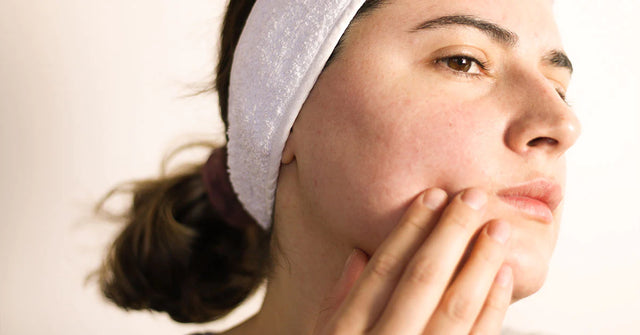Dry skin results from a lack of fluid or natural oil content and while it is normal to experience dry skin occasionally, persistently dehydrated skin might signal an underlying condition. Of course, if you have this condition, you may be asking yourself, how long does dehydrated skin take to heal, and the answer to this depends on your skin type, the underlying cause of dryness, and the fact that our bodies respond differently to remedial procedures or treatment.
With the right information, tips, and techniques, it’s possible to get rid of dry skin within a few days. However, a wrong approach may not only delay recovery but could also result in some unwanted complications.
In this article, we'll explore some solutions to dry skin. However, before jumping into the details, let's look into dry skin type, what it is, and the conditions that cause dry skin.
Overview of Dry Skin Type
A dry skin type is often characterized by flaky patches, itching, and cracks, which result from little or no sebum - your natural oil - to protect the skin. If the skin does not produce an adequate amount, it becomes dehydrated, resulting in Xerosis or Xeroderma, also known as dry skin. This dehydration may happen naturally or be due to certain health conditions. Let's look at some common health issues that could cause skin dehydration.
Seborrheic Dermatitis
Seborrheic dermatitis affects all skin types, including oily skin. Its core targets are oily parts of the body, creating visible inflammation around those areas. Anytime you notice scaly patches, inflamed skin, or stubborn dandruff on your scalp, you may be looking at Seborrheic dermatitis, although it’s important to note that not all scaly patches on your scalp indicate the condition.
Contact Dermatitis
Contact dermatitis is another common skin condition that can trigger skin dehydration. It is characterized by an itchy rash on the skin that appears after it comes in contact with an irritant. In some cases, you may experience contact dermatitis more frequently if you tend to be allergic to items like toiletries, cosmetics, or detergents.
Atopic Dermatitis
Atopic dermatitis is also called eczema and has various triggers. It is a chronic condition that is uncomfortable and if severe, very painful. Atopic dermatitis and dry skin are co-existent - enduring persistent dry skin could trigger a breakout of atopic dermatitis and the presence of atopic dermatitis can lead to dehydration.
How Long for Dry Skin to Heal
With the right skincare routine and treatment, this condition may begin to improve within days or, at most, weeks. The first sign of improvement you'll notice is a reduction in inflammation and flakiness, cracks in the skin start to heal, and itching will subside. The final healing phase is when the skin’s natural moisture levels will be restored.
It goes without saying that individuals want this process to happen as quickly as possible, and following the tips highlighted below could drastically reduce how long it takes to heal dry skin.
What Causes Dry Skin?
Several factors can cause dry skin and you need to address the underlying causes to achieve a lasting solution to the problem. While some of the causes are natural or metabolic, it can also be due to other factors such as your diet or the ingredients in your skincare. Other common reasons why you may be experiencing dry skin include:
Age
Aging reduces the natural ability of the body to hydrate the skin. As you age, the skin begins to thin, and the quantity of oil it produces declines drastically, resulting in persistent dryness. After the age of 40, you may begin to experience incessant dryness, but the remedies suggested in this article would help you keep your skin hydrated and healthy.
Environmental Factors
Living in an environment with adverse weather conditions or low humidity can often be a cause of dry skin as it may be unable to retain moisture in these conditions.
Medical History
Skin dryness is sometimes associated with certain health issues such as those affecting the kidneys or liver. Medications such as laxatives, and those for cholesterol levels and blood pressure may also cause dehydration.
Genes
Certain genetic disorders can cause skin dryness. According to experts, abnormality in the protein configuration of human genes can affect the skin's structure and result in dry, flaky skin, and while this may be more challenging to manage, adopting simple lifestyle changes and implementing the tips suggested below may reduce its severity.
Best Tips to Avoid Dry Skin
Proper skincare is key when it comes to treating dry skin or preventing it from developing. While each individual will have a different experience in how long it takes for dry, sensitive skin to heal, following the tips below may help improve hydration within just a few days. So, let’s look at some of the proven steps that can help reduce dry skin quickly.
Use Moisturizers
Skin dryness can be improved by restoring levels of moisture and then locking it in the skin to prevent further dehydration. A good quality moisturizer will perform both these functions using a blend of ingredients that will often include hyaluronic acid, glycerin, and beneficial botanical extracts. While lightweight and easily absorbed, Infusoderm daily moisturizer will keep the skin optimally hydrated while also working to protect it from damage with powerful antioxidants. Using this type of product and learning how to build a skincare routine for dry skin that includes other treatments specifically designed for this purpose will produce the best results.
Avoid Scrubbing Dry Skin Patches
Scrubbing dry skin patches damages the already fragile outer layer of the skin and delays the healing process. Always opt for gentle products, such as foaming facial cleansers, hydrating toners, and rich serums while avoiding chemical-based soaps, harsh physical exfoliants, and any skincare products that are heavily scented with synthetic fragrance.
Change Your Bathing Schedule
While hygiene is important, over-frequent showering and bathing, particularly in very hot water, can strip the skin of its naturally-protective oils and increase the risk of dehydration.
To ensure that your bathing routine doesn’t add to your dry skin problem, follow the advice of dermatologists who, in addition to using warm, not hot, water, recommend keeping the duration of your showers and baths short, patting the skin dry, and applying moisturizing creams or lotions within 2-3 minutes of bathing.
FAQs
What is the fastest way to heal dry skin?
While this depends largely on the severity of the condition, there are some ways to reduce how long it takes to heal dry skin. Applying moisturizer throughout the day would help you achieve the best results and experts say to apply it as often as every two hours.
What happens if your skin is dry for too long?
Persistently dry skin could result in irritation, itching, and discomfort, and not addressing the problem may make it susceptible to developing certain conditions that can alter the texture of your skin or cause permanent damage over time.
Can dry skin cure itself?
Depending on the cause, dehydrated skin may become better on its own, although the process may take longer. Making some healthy lifestyle changes and creating a skincare routine that uses treatments designed for dry skin will certainly help you see results in a shorter time.
Conclusion
Dry skin is not only uncomfortable, and in some cases, painful, but it may also cause you to become self-conscious, especially when it occurs on the face. Following the tips outlined in this article and creating a skincare routine using products designed to restore and retain hydration, such as those in our collection of clinically proven treatments, will not only help eliminate dryness quickly but ensure that it remains smooth and soft to the touch over the long term.
Mentioned in this article
More stories

How to Calm Redness on the Face: 5 Causes & Treatments




